Types Of Mulch For Landscaping: Which One Is Right For You
Types of Mulch for Landscaping: Which One is Right for You?
Mulch is a layer of material that is spread around plants to improve the soil, reduce weeds, and conserve water. There are many different types of mulch available, each with its own unique benefits and drawbacks.
In this blog post, we will discuss the different types of mulch and help you choose the right one for your landscaping needs.
Introduction
Mulch is a great way to improve the health and appearance of your landscaping. It can help to:
- Conserve water by reducing evaporation from the soil
- Suppress weed growth by blocking sunlight and creating a barrier
- Improve soil aeration by providing organic matter
- Add nutrients to the soil as it decomposes
- Protect plant roots from temperature extremes
- Improve the overall appearance of your landscaping
Types of Mulch
There are many different types of mulch available, each with its own unique properties. Some of the most common types of mulch include:
- Wood chips: Wood chips are a versatile mulch that can be used around a variety of plants. They are relatively inexpensive and easy to find. Wood chips can be made from a variety of trees, including pine, oak, and maple.
- Shredded bark: Shredded bark is another popular mulch option. It is made from the bark of trees, such as cedar, cypress, and redwood. Shredded bark is often dyed to create different colors. It is relatively expensive, but it does last longer than other types of mulch.
- Pine straw: Pine straw is a type of mulch that is made from the needles of pine trees. It is a natural mulch that is soft and easy on the feet. Pine straw is relatively inexpensive and easy to find. It is a good choice for areas with sandy soil, as it helps to improve drainage.
- Cocoa bean hulls: Cocoa bean hulls are a type of mulch that is made from the leftover shells of cocoa beans. They are a natural mulch that is dark brown in color. Cocoa bean hulls are relatively expensive, but they do last a long time. They are a good choice for areas with poor drainage, as they help to improve water retention.
- Rocks and gravel: Rocks and gravel are inorganic mulches that do not decompose. They are a good choice for areas where you want to create a long-lasting mulch bed. Rocks and gravel can be expensive, but they are very durable.
Choosing the Right Mulch
When choosing the right mulch for your landscaping, there are a few factors you need to consider:
- The type of plants you are mulching: Some plants prefer certain types of mulch. For example, pine straw is a good choice for acid-loving plants, such as rhododendrons and azaleas.
- The climate in your area: Some mulches are better suited for certain climates than others. For example, wood chips may not be the best choice for areas with hot, dry summers.
- The amount of maintenance you are willing to do: Some mulches require more maintenance than others. For example, rocks and gravel need to be replaced less often than wood chips.
- Your budget: Mulch can range in price from very inexpensive to very expensive.
Conclusion
Mulch is a great way to improve the health and appearance of your landscaping. By choosing the right type of mulch for your needs, you can enjoy the benefits of mulch for many years to come.
There are many different types of mulch available for landscaping, each with its own benefits and drawbacks. Some of the most common types of mulch include wood chips, bark, straw, and compost. Wood chips and bark are good for retaining moisture and suppressing weeds, but they can also be heavy and difficult to spread. Straw is lightweight and easy to spread, but it doesn't last as long as wood chips or bark. Compost is a good choice for improving soil quality, but it can be expensive and time-consuming to make.
To learn more about the different types of mulch available and how to choose the right one for your landscaping needs, visit Home Gardening.
FAQ of types of mulch for landscaping
- What are the different types of mulch?
There are two main types of mulch: organic and inorganic. Organic mulches are made from natural materials, such as wood chips, bark, leaves, and straw. They decompose over time, adding nutrients to the soil and helping to suppress weeds. Inorganic mulches, such as gravel, rocks, and plastic sheeting, do not decompose. They are more durable than organic mulches and require less maintenance, but they do not add any nutrients to the soil.
- What are the benefits of using mulch?
Mulch offers a number of benefits for landscaping, including:
* Water retention: Mulch helps to keep the soil moist, which can help plants to thrive, especially during hot, dry weather.
* Weed suppression: Mulch creates a barrier that makes it difficult for weeds to germinate.
* Soil aeration: Mulch helps to improve soil aeration, which allows oxygen and water to reach plant roots more easily.
* Temperature moderation: Mulch can help to moderate soil temperatures, keeping the soil cooler in the summer and warmer in the winter.
* Attraction of beneficial insects: Some types of mulch, such as cedar bark, can attract beneficial insects that help to control pests.
- How thick should mulch be?
The thickness of the mulch layer you use will depend on the type of mulch you choose. Organic mulches should be applied in a layer that is 2-4 inches thick. Inorganic mulches can be applied in a thicker layer, up to 6 inches thick.
- How often do I need to reapply mulch?
The frequency with which you need to reapply mulch will depend on the type of mulch you use and the climate in your area. Organic mulches will need to be replaced more often than inorganic mulches. In general, you should reapply organic mulch every year or two. Inorganic mulches can last for several years before needing to be replaced.
- What is the best type of mulch for my landscape?
The best type of mulch for your landscape will depend on a number of factors, including the type of plants you have, the climate in your area, and your budget. If you are unsure of which type of mulch to choose, consult with a local nursery or garden center.
- Is there any type of mulch that I should avoid?
There are a few types of mulch that you should avoid, such as:
* Mulch that is treated with chemicals: Some types of mulch, such as dyed mulch, may be treated with chemicals that can be harmful to plants or animals.
* Mulch that is not appropriate for the climate in your area: For example, if you live in an area with hot, dry summers, you should avoid using mulch that will dry out quickly, such as straw.
* Mulch that is not compatible with the plants in your landscape: For example, if you have plants that prefer acidic soil, you should avoid using mulch that is alkaline, such as pine bark.
Image of types of mulch for landscaping
- Shredded bark mulch: This is a popular choice for landscaping because it is attractive, versatile, and relatively inexpensive. It can be used around trees, shrubs, flowers, and other plants.
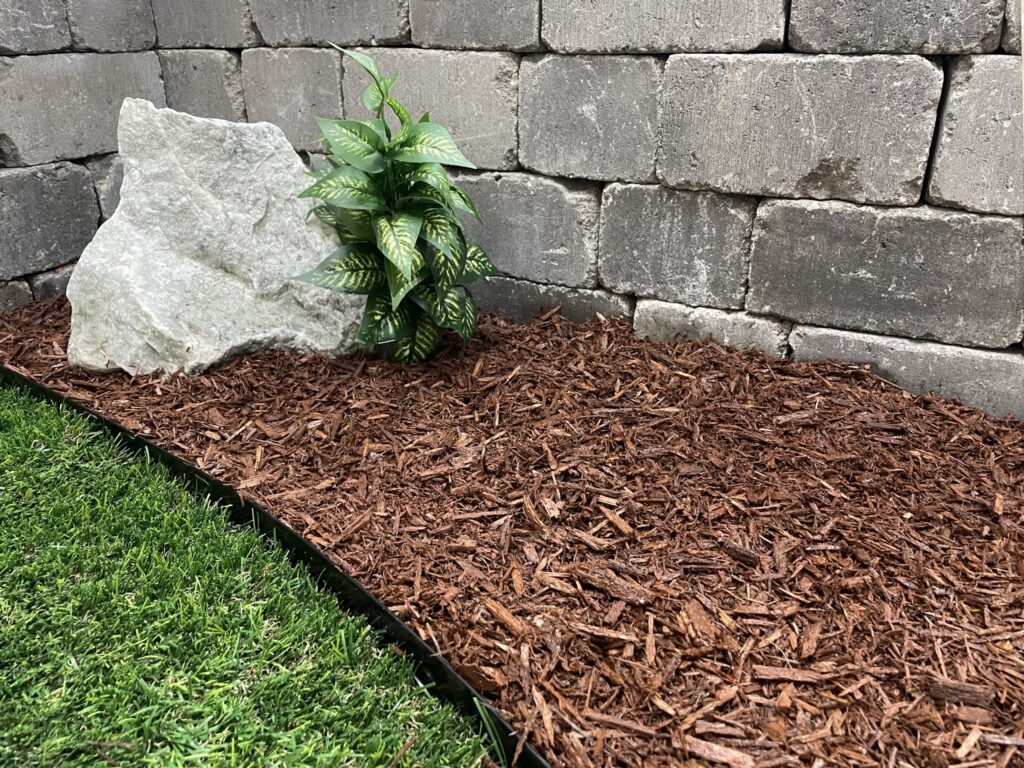
- Wood chips mulch: This is another popular choice for landscaping. It is similar to shredded bark mulch, but it is made from larger pieces of wood. Wood chips mulch can help to improve the drainage in soil and suppress weeds.
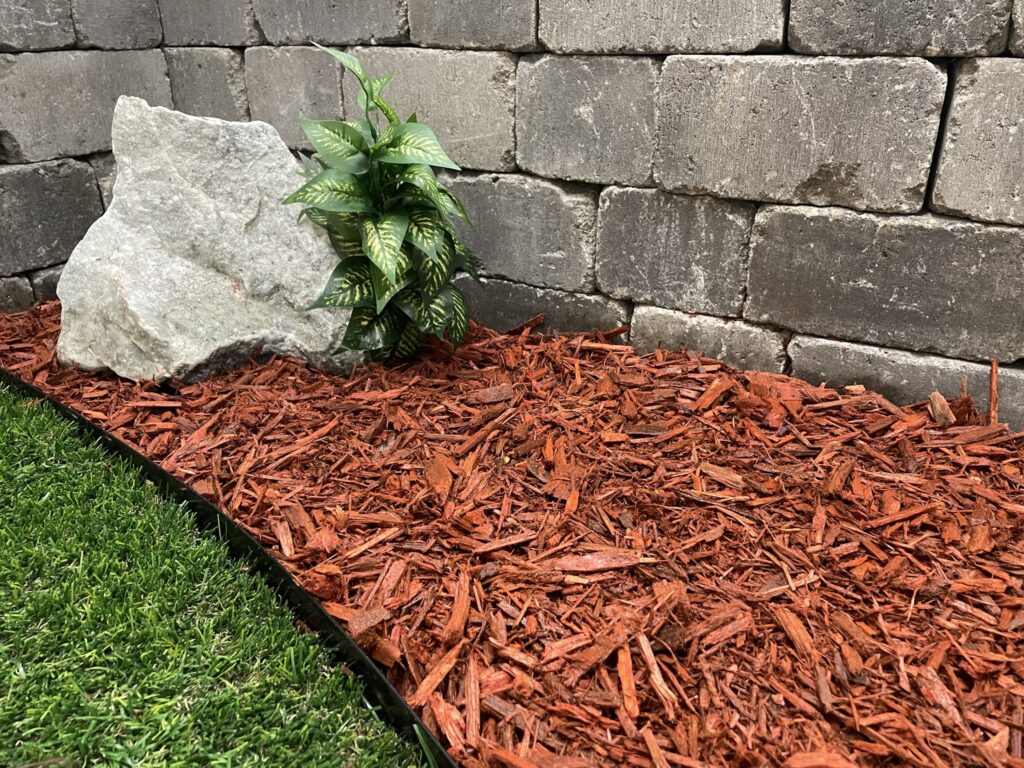
- Pine needles mulch: This type of mulch is a good choice for areas with acidic soil. It is also attractive and can help to suppress weeds.

- Cocoa bean mulch: This type of mulch is a unique and attractive option. It is made from the byproducts of cocoa production and has a rich, chocolatey smell. Cocoa bean mulch can help to improve the drainage in soil and suppress weeds.

- Oak leaves mulch: This type of mulch is a good choice for areas with alkaline soil. It is also attractive and can help to suppress weeds.
- Grass clippings mulch: This type of mulch is a free and easy option. It is best to use grass clippings that have been dried and free of weeds. Grass clippings mulch can help to improve the drainage in soil and suppress weeds.
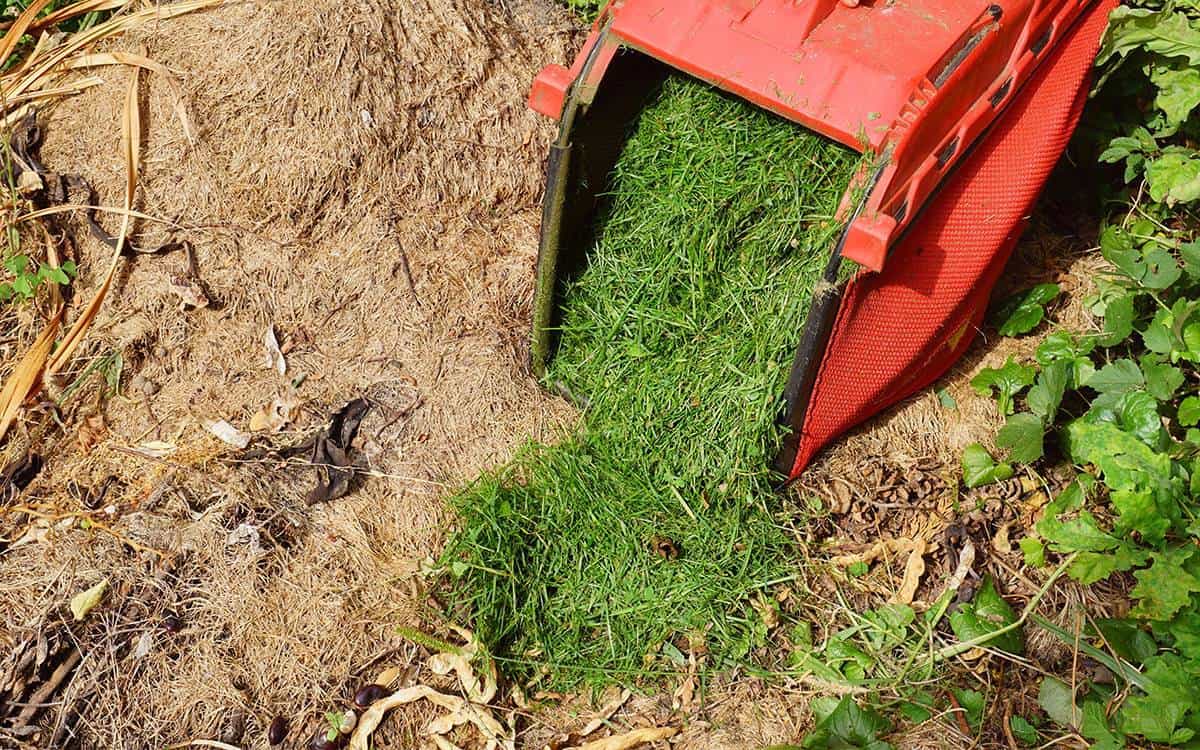
- Compost mulch: This type of mulch is the most nutrient-rich option. It is made from decomposed organic matter, such as food scraps, yard waste, and manure. Compost mulch can help to improve the fertility of soil and suppress weeds.

- Rock mulch: This type of mulch is a good choice for areas with hot, dry climates. It can help to reflect sunlight and keep the soil cool. Rock mulch is also very durable and can last for many years.

- Plastic mulch: This type of mulch is a good choice for areas with heavy weed growth. It is made from a black plastic material that blocks sunlight, which prevents weeds from germinating. Plastic mulch can also help to conserve water and improve the drainage in soil.
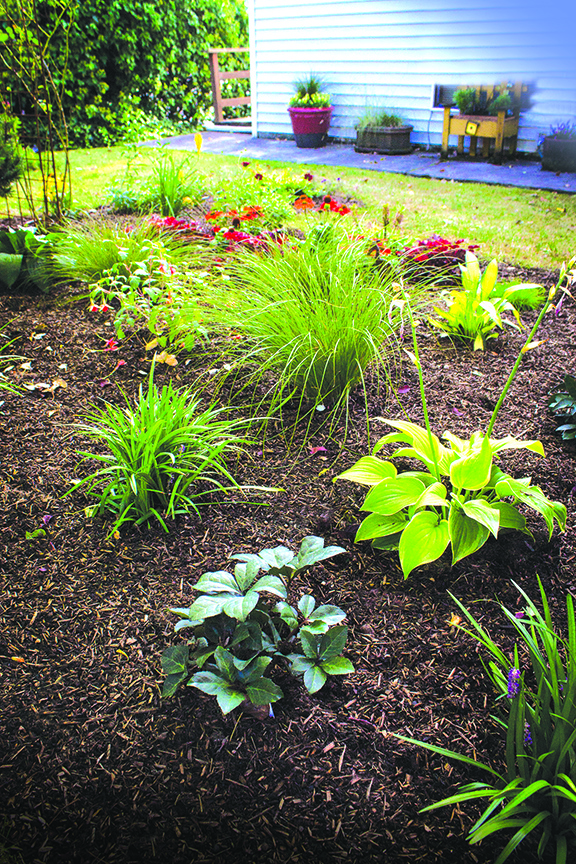
- Geotextile fabric: This type of mulch is a good choice for areas with heavy foot traffic. It is made from a woven fabric that prevents weeds from growing through. Geotextile fabric can also help to improve the drainage in soil.
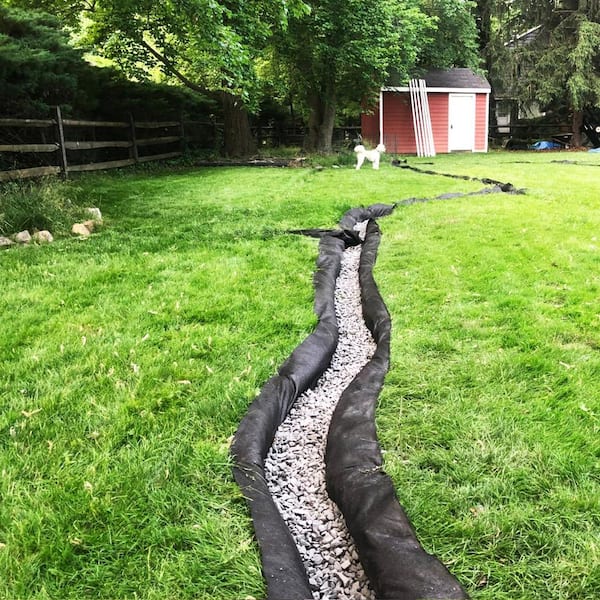
Post a Comment for " Types Of Mulch For Landscaping: Which One Is Right For You"